
Poems Kubla Khan, Samuel Taylor Coleridge poster Samuel taylor
'Kubla Khan' is perhaps the most famous unfinished poem in all of English literature. But why the poem remained unfinished, and how Samuel Taylor Coleridge came to write it in the first place, are issues plagued by misconception and misunderstanding. How should we analyse this classic poem by one of the pioneers of English Romanticism?
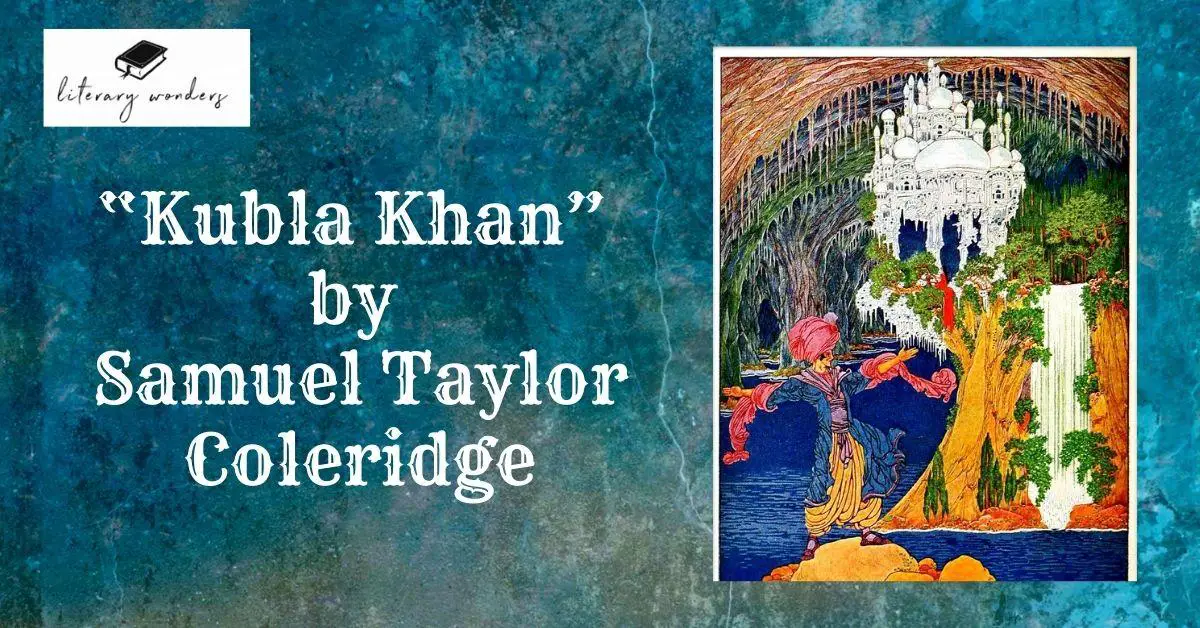
“Kubla Khan” by Samuel Taylor Coleridge literarywonders
December 2, 2021 in Literature Kubla Khan is one of the best poems written by Samuel Taylor Coleridge. It is, in fact, one of those three poems that have kept Coleridge's name in the forefront of the greatest Romantic poets —the other two poems are The Ancient Mariner and Christabel. Coleridge wrote all the three famous poems in 1797 and 1798.
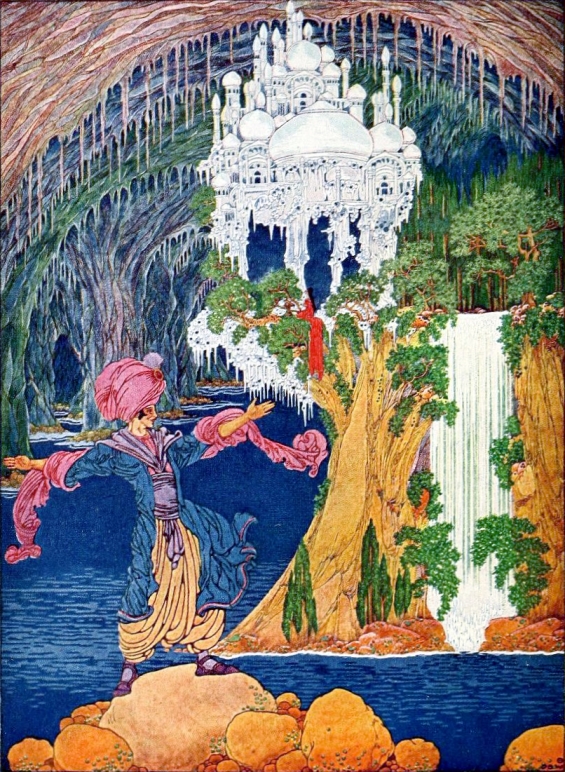
Kubla Khan or a Vision of Dream by Samuel Taylor Coleridge (read by
Samuel Taylor Coleridge said that he wrote "Kubla Khan" in the fall of 1797, but it was not published until he read it to George Gordon, Lord Byron in 1816, when Byron insisted that it go into print immediately. It is a powerful, legendary and mysterious poem, composed during an opium dream, admittedly a fragment.

kubla khan samuel taylor coleridge
One night, Samuel Taylor Coleridge wasn't feeling all that great. To dull the pain, he took a dose of laudanum, a preparation of opium used as a medicine in the 19th century. He fell asleep and had a strange dream about a Mongol emperor named Kubla Khan. Coleridge dreamed that he was actually writing a poem in his sleep, and when he woke up.

Kubla Khan Testo Traduzione Analisi Scuola e cultura
Kubla Khan. Down to a sunless sea. Enfolding sunny spots of greenery. Down the green hill athwart a cedarn cover! By woman wailing for her demon-lover! It flung up momently the sacred river. Ancestral voices prophesying war! From the fountain and the caves. A sunny pleasure-dome with caves of ice!

"Kubla Khan" by Samuel Taylor Coleridge YouTube
Down to a sunless sea. So twice five miles of fertile ground With walls and towers were girdled round: And there were gardens bright with sinuous rills, Where blossomed many an incense-bearing tree; And here were forests ancient as the hills, Enfolding sunny spots of greenery. But oh! that deep romantic chasm which slanted

Analysis of Coleridge’s Kubla Khan Literary Theory and Criticism
Kubla Khan by Samuel Taylor Coleridge In Xanadu did Kubla Khan A stately pleasure-dome decree: Where Alph, the sacred river, ran Through caverns measureless to man Down to a sunless sea. So.
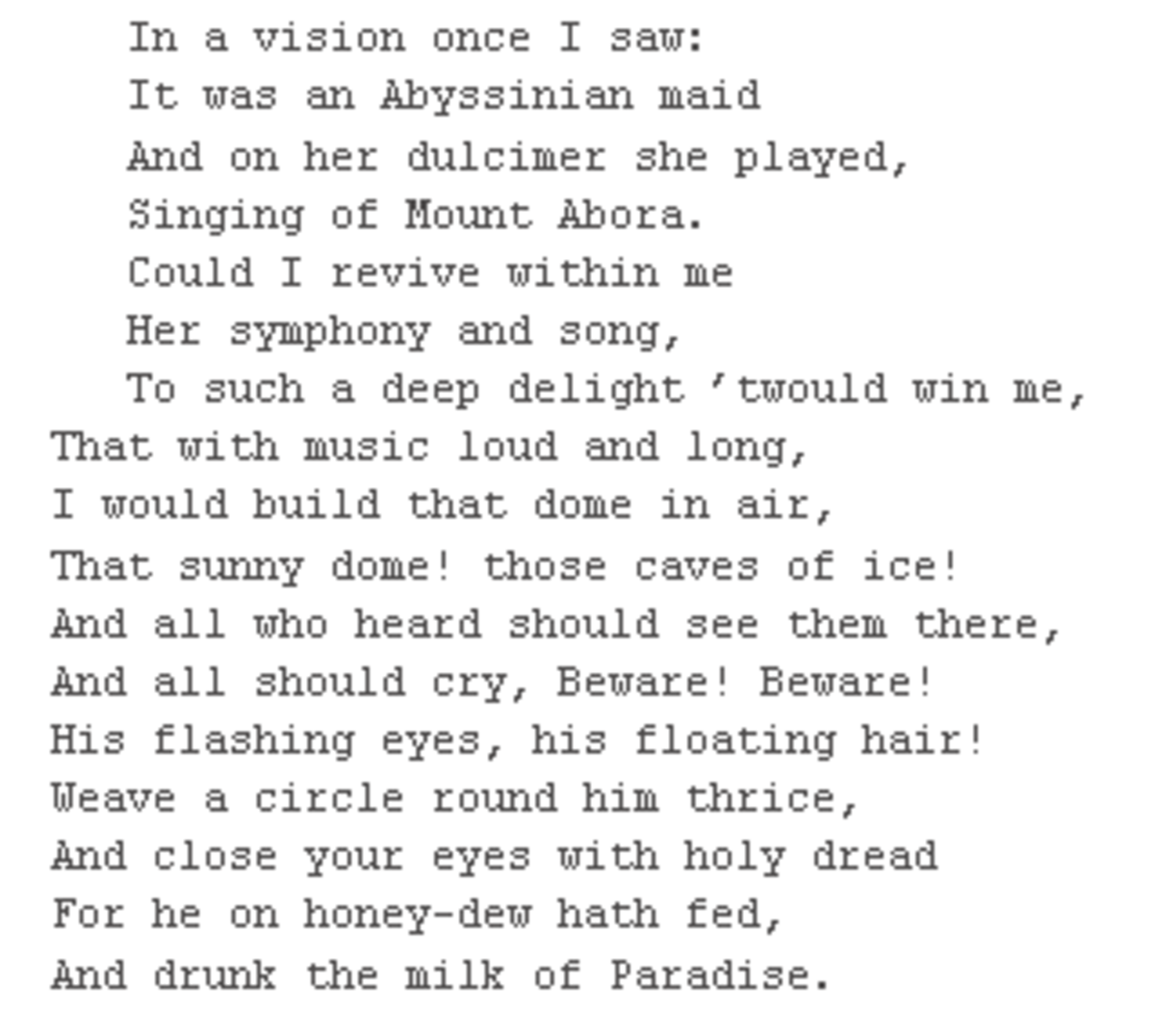
How Do These Final Lines From Kubla Khan
Along with "The Rime of the Ancient Mariner," "Kubla Khan" is one of Coleridge's most famous and enduring poems. The story of its composition is also one of the most famous in the history of English poetry.

What Is "Kubla Khan" by Coleridge Actually About? Owlcation
A savage place! as holy and enchanted As e'er beneath a waning moon was haunted By woman wailing for her demon lover! And from this chasm, with ceaseless turmoil seething, As if this earth in fast thick pants were breathing, A mighty fountain momently was forced: Amid whose swift half-intermitted burst Huge fragments vaulted like rebounding hail,
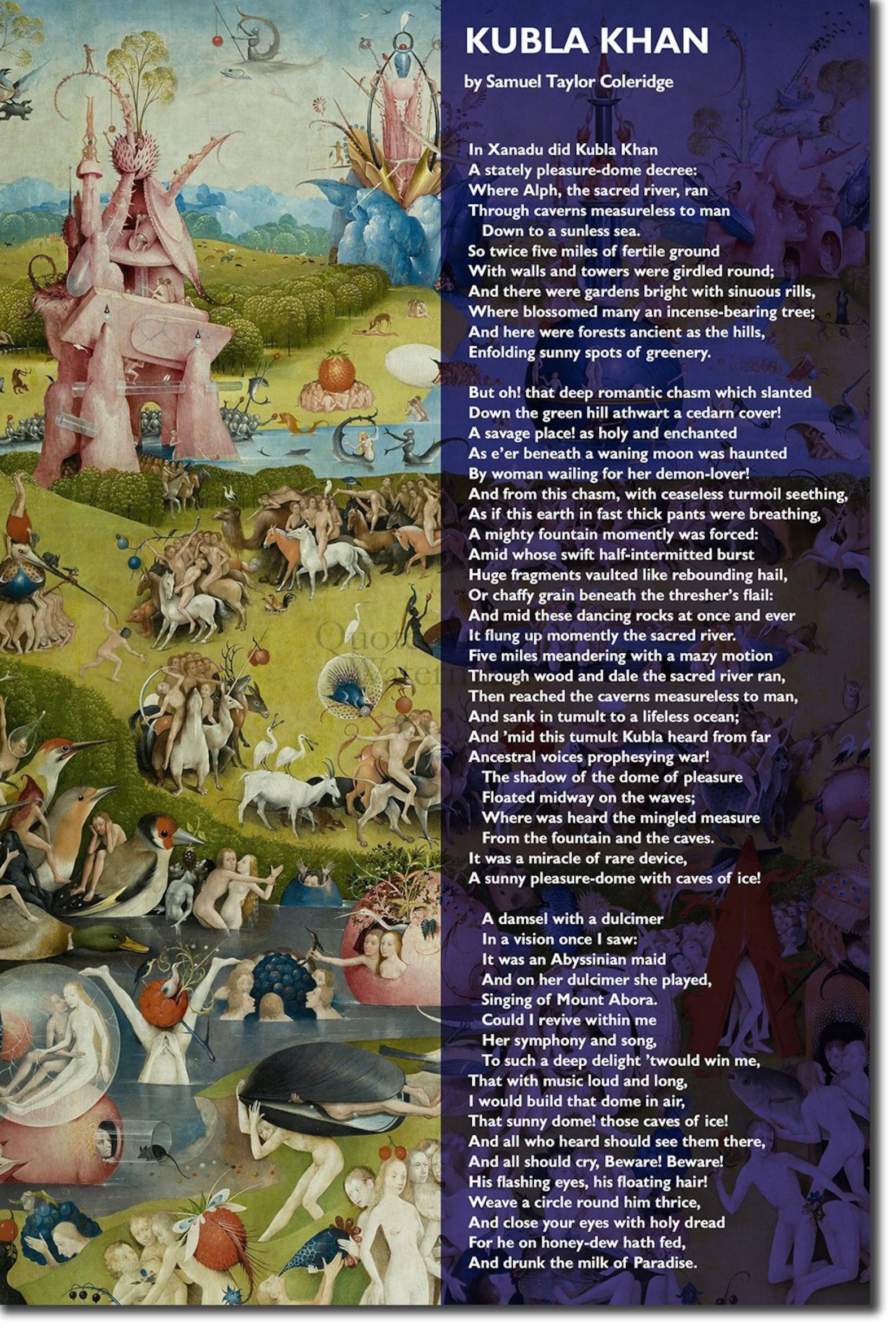
Kubla Khan by Samuel Taylor Coleridge Poem Poetry Art Print Etsy UK
A Fragment. In Xanadu did Kubla Khan A stately pleasure-dome decree: Where Alph, the sacred river, ran Through caverns measureless to man Down to a sunless sea. So twice five miles of fertile ground With walls and towers were girdled round; And there were gardens bright with sinuous rills, Where blossomed many an incense-bearing tree;

Describe the Images Used by St Coleridge in Kubla Khan HowardhasOrr
Kubla Khan: or A Vision in a Dream ( / ˌkʊblə ˈkɑːn /) is a poem written by Samuel Taylor Coleridge, completed in 1797 and published in 1816. It is sometimes given the subtitles "A Vision in a Dream" and "A Fragment."

Analysis of 'Kubla Khan' By Samuel Taylor Coleridge Talent 100
3 James Engell, Coleridge: The Early Family Letters (Oxford: Clarendon Press, 1994), p. 32. 4 Engell, Coleridge: The Early Family Letters, p. 32. 5 Samuel Taylor Coleridge, 'Kubla Khan', Coleridge's Poetry and Prose, ed. Nicholas Halmi (New York: Norton, 2004), p. 182. Italicisations in quotations included by the author of this

Kubla Khan by Samuel Taylor Coleridge 17721834 on Behance
'Kubla Khan' is Samuel Taylor Coleridge's celebrated visionary poem which explores the creative imagination by contrasting two worlds: an exotic idea of paradise initiated by the historic figure of Kubla Khan and a more personal poetic ideal sparked by the muse.
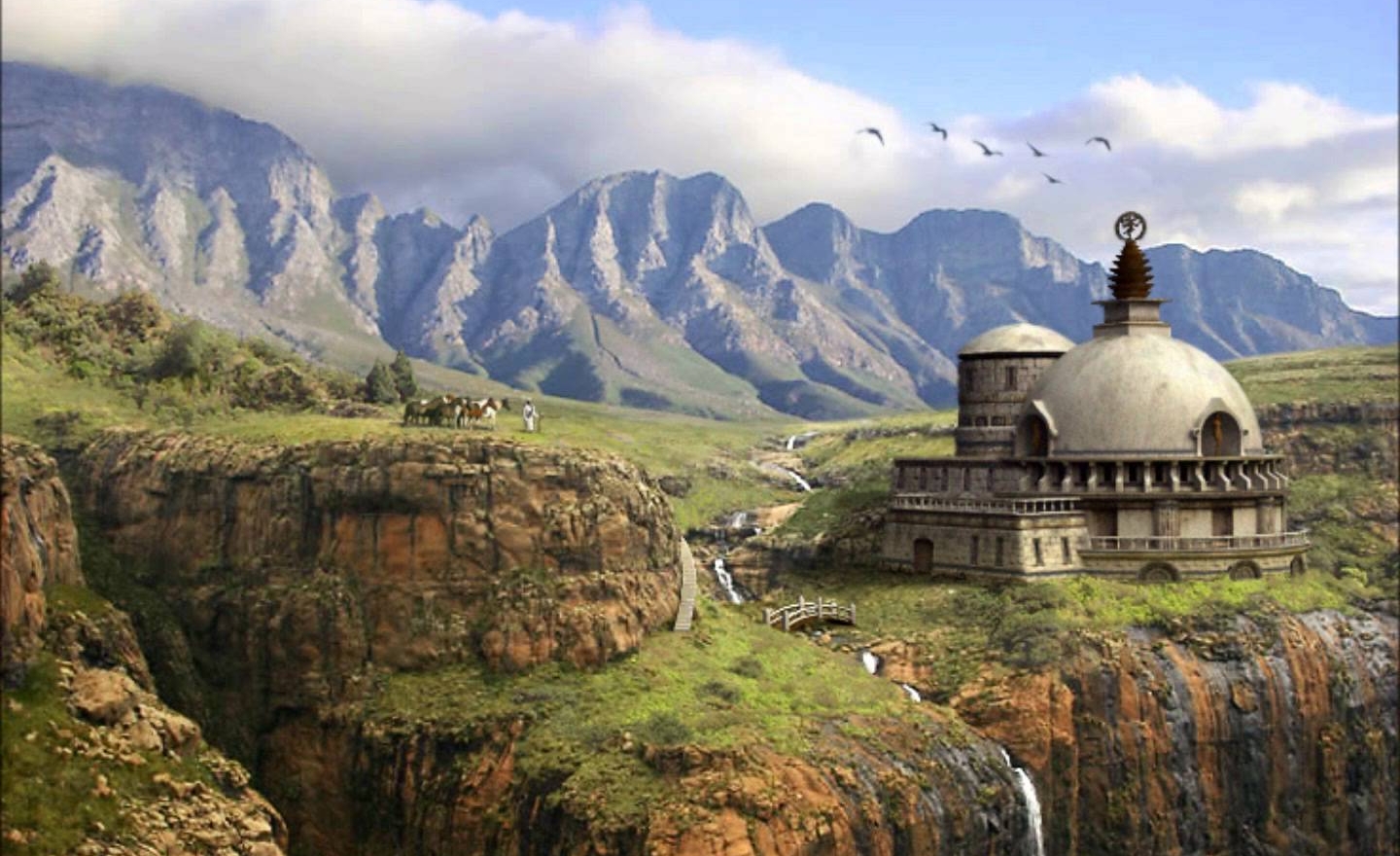
Kubla Khan haberleri
"Kubla Khan" is considered to be one of the greatest poems by the English Romantic poet Samuel Taylor Coleridge, who said he wrote the strange and hallucinatory poem shortly after waking up from an opium-influenced dream in 1797.
Kubla Khan by Samuel Taylor Coleridge Classic Poem Iconic Poetry on Old
Kubla Khan by S.T. Coleridge is a poem that has been interpreted in a thousand different ways. Critics have analysed every word and every line only to make the readers more confused about the real message of the poem.
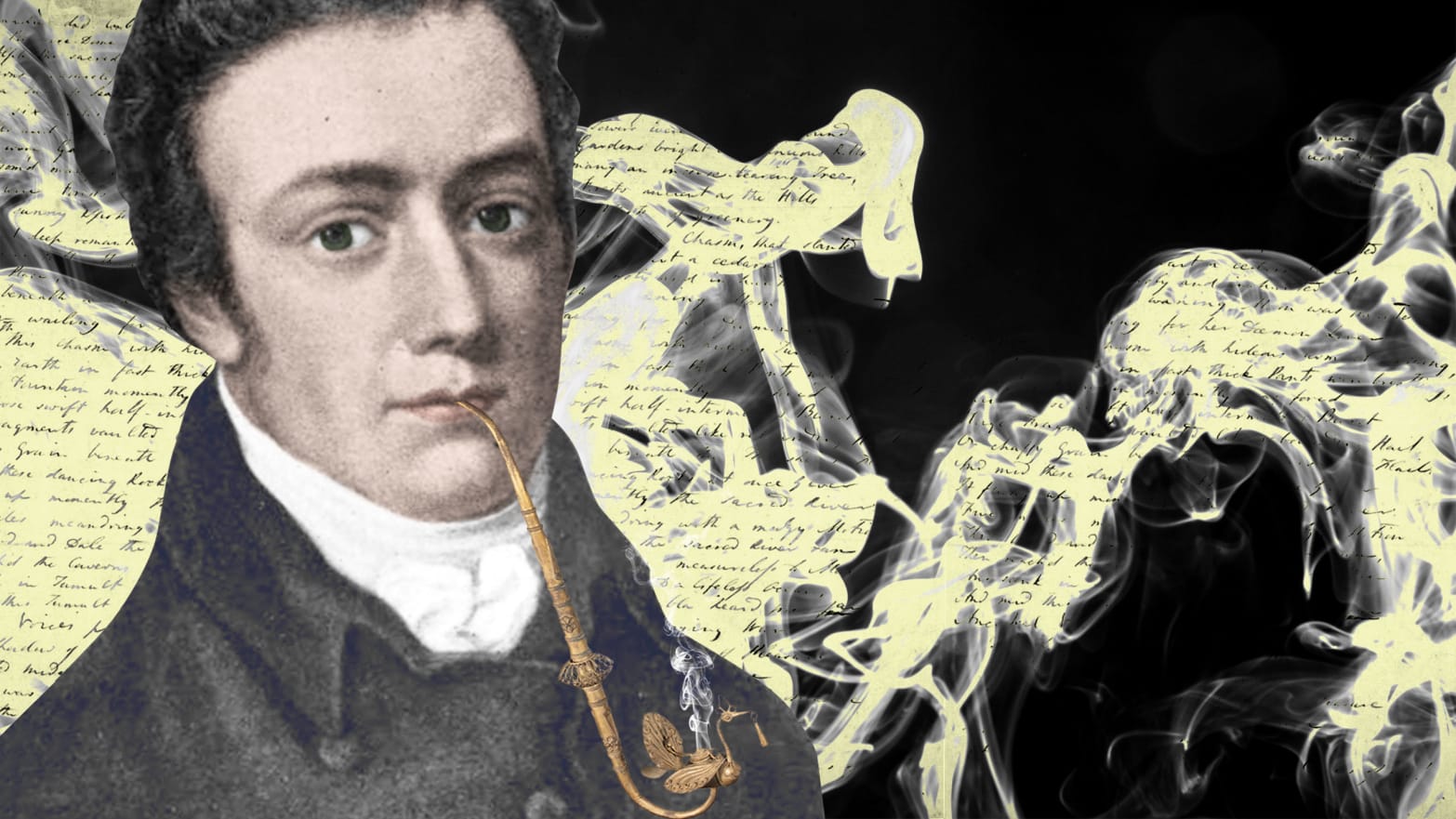
Did Opium Make Coleridge the Rest of ‘Kubla Khan’?
Kubla Khan, poetic fragment by Samuel Taylor Coleridge, published in 1816. According to Coleridge, he composed the 54-line work while under the influence of laudanum, a form of opium. Coleridge believed that several hundred lines of the poem had come to him in a dream, but he was able to remember only this fragment after waking.